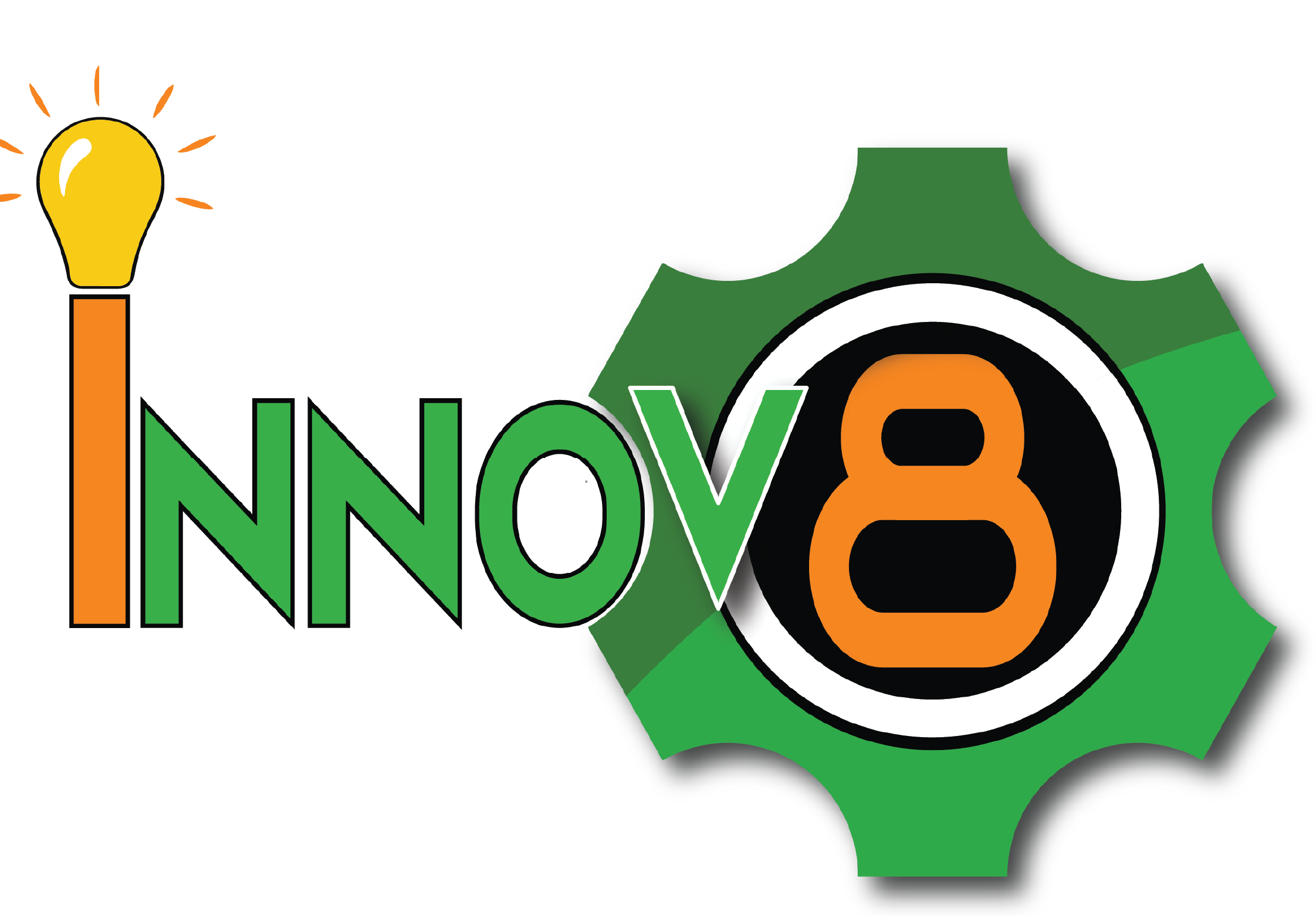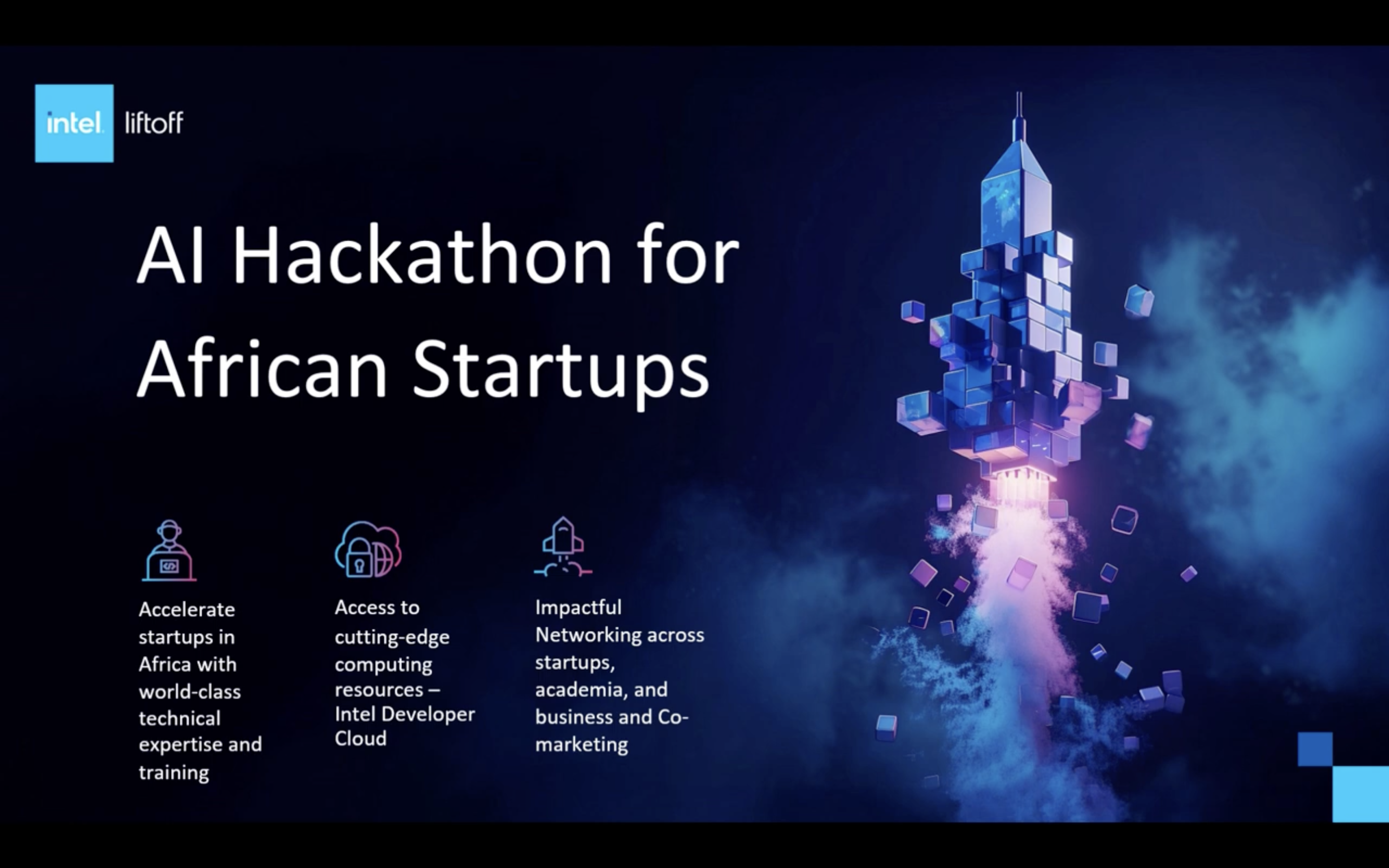At the recent launch of the Intel® Liftoff Hackathon for African AI Startups, Innov8 Hub facilitated a workshop titled “Design Thinking Approach for AI Startups.” Our goal? To equip aspiring entrepreneurs with the tools to navigate the exciting world of AI development, all while keeping the user at the heart of the process.
This year’s Hackathon partners include Modus Africa; University Mohamed VI Polytechnic- Morocco and UM6P Ventures; TUT Hub of Artificial Intelligence Institute of South Africa; Prosper Africa; FAST Accelerator; Innov8 Technology Hub; Zetech Innovation, Entrepreneurship & Technology Hub; and Open Startups International.
Our Head of Venture Programs, Andrew Aryee, emphasized the critical role of user-centric design in the entrepreneurial journey of AI startups. By prioritizing user needs from the very beginning, AI solutions can be crafted to address real-world challenges and maximize impact.

The workshop unpacked five key takeaways that form the foundation of a successful design thinking approach for AI startups:
1. Empathy and User-Centric Design:
This is the cornerstone. Understanding user needs, frustrations, and aspirations is essential for developing relevant and innovative AI solutions. Techniques like user interviews, surveys, and observation can illuminate these needs and help startups identify the problems their solutions will solve.
2. Problem Definition and Assumption Testing:
A clear understanding of the problem you’re tackling is crucial. Don’t be afraid to challenge assumptions early and often. Validate your initial problem definition through user research and feedback to ensure you’re on the right track.
3. Effective Brainstorming and Idea Prioritization:
Spark creativity! Encourage your team to generate a wide range of ideas, no matter how outlandish they may seem. Once you have a diverse pool, strategically prioritize the most viable ones based on feasibility, user needs, and potential impact.
4. Prototyping and User Testing:
Don’t wait for perfection. Develop a low-fidelity prototype – a basic model of your solution – and get it into the hands of users. User feedback is invaluable for refining your solution and ensuring it truly addresses the problem you’ve identified.
5. Iterative Design Process:
The journey from a concept to a market-ready AI product is rarely linear. Embrace an iterative approach. Continuously test your solution with users, gather feedback, and incorporate it into your design. This ensures your solution evolves to meet the ever-changing needs of your target audience.
The Kick-Off
Following the workshop, our Deputy CTO, Nizor Ogbezuode, officially kicked off the hackathon with Challenge No. 1, focusing on Generative AI (GenAI) using Stable Diffusion Models. This exciting challenge is a perfect example of putting design thinking into action, as participants will use their creativity and problem-solving skills to develop innovative AI applications.
By adopting a user-centric design thinking approach, AI startups can increase their chances of success in the competitive tech landscape. Innov8 Hub is proud to be a part of fostering a new generation of African AI entrepreneurs who are building solutions that make a positive impact on the world.






